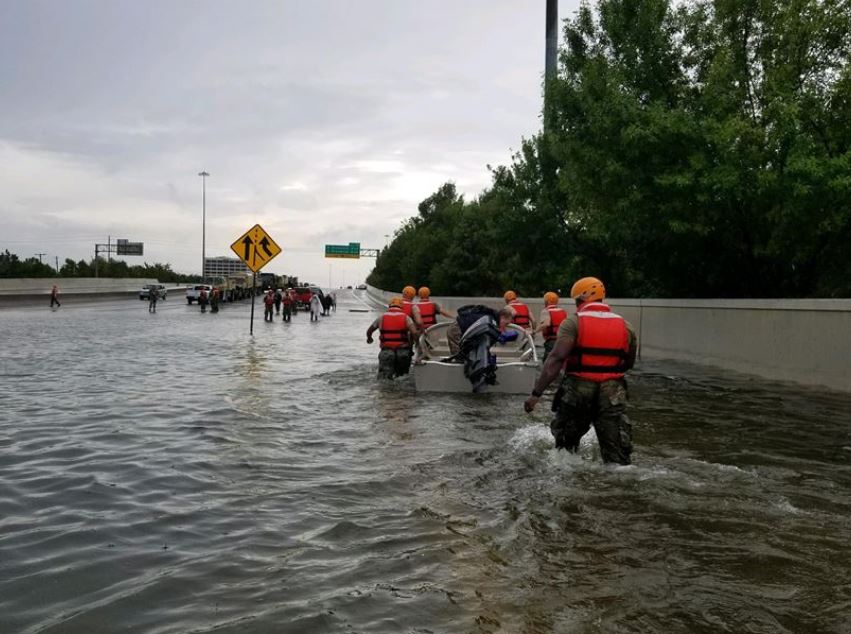
Break the #ClimateSilence: Time for a new conversation
When the next hurricane or wildfire or other climate impact comes, I hope to see as many journalists barging through the halls of government demanding answers from decision-makers as we see braving the elements reporting on the front lines. That’s the #climatesilence that needs breaking.
It’s hard to avoid climate disasters this summer in the United States. From massive floods spurred by supercharged storms to enormous wildfires shrouding an entire region in smoke, the climate crisis is staring at us every day for those willing to see it.
But if you read most major newspapers, or watch most TV news shows, you won’t get the full story of what’s behind these superstorms, who’s to blame, and what to do about it. There’s #ClimateSilence in the media, and it’s not just about no one saying the words “climate change.”
Some reporters have been asking important questions of our politicians and leaders about what the response to these climate-driven superstorms should be. They’ve been met with hesitant responses from climate champions and ignorant responses from climate deniers. Instead of accepting these terrible answers and moving on, reporters need to push these politicians to say more, to defend their inaction or delay, and to hold the industry responsible to account. Worse yet, far more stories have not even included any serious discussion of how politicians are going to respond to the climate crisis in order to save lives in the future.
The public discussion today – in the wake of several climate calamities around the globe, and surely ahead of even more – should go beyond what’s behind the unusual aspects of extreme weather these days. We already know the answer to that question, and it’s not controversial: Climate change is making hurricanes worse, fueling wildfires out west, and putting us all at risk. Simply reporting that fact should be the starting point for good analysis, not the goal to strive for. The discussion journalists and all of us should be driving is: What are we going to do about it?
When it comes to that important question, there are clear answers: End fossil fuel subsidies and keep fossil fuels in the ground. Push towards 100% renewable energy as quickly as possible. Develop community-led just transition and recovery plans while managing the phase-out of fossil fuels. And, importantly, purge our politics of the toxic influence of the fossil fuel industry.
Journalists writing stories on fossil-fueled superstorms can’t be simply applauded for citing the fact that climate change is at play. We must demand that they push deeper and ask the important questions about who’s behind it and what to do about it. Yes, reporting on the impacts of each disaster is critical to ensure public safety, but all of our safety is at risk if the story isn’t taken further.
So, when the next hurricane or wildfire or other climate impact comes, I hope to see as many journalists barging through the halls of government demanding answers from decision-makers as we now see braving the elements to report from the front lines.
That’s the #ClimateSilence that needs breaking, and it’s about time.
